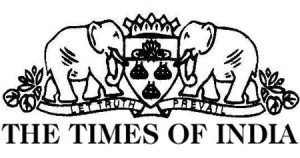We were Rubabuddin’s lawyers once; here’s our account of what we saw happen with the Sohrabuddin Sheikh fake encounter case
ONE Saturday morning in early 2013, the Mumbai-based lawyer Sanjay Singhvi called Vijay Hiremath. Singhvi asked Hiremath to meet him in his office near the Bombay High Court that afternoon. By way of explaining the sudden invitation, he mentioned that the late Mukul Sinha, a prominent human rights advocate and lawyer from Gujarat, was in town and wished to speak to Hiremath. Singhvi said little else. The apparent urgency of this meeting remained unclear.
At this time, Sinha was involved in several high-profile cases, many of which brought him in direct opposition to the Bhartiya Janata Party-led government in Gujarat. He represented several Muslim victims of the communal violence in Gujarat in February 2002 and was associated with controversial cases related to extrajudicial killings within the state. These included the murders of Ishrat Jahan, a teenaged girl, and three other young men in 2004, all of whom, the Gujarat police claimed, were “terrorists linked to Lashkar-e-Taiba, on a mission to kill Narendra Modi”, then the chief minister of the state.

Sohrabuddin Sheikh with his wife Kausar Bi.
Sinha was also involved in the case of the allegedly staged encounter killings of Sohrabuddin Sheikh, a small-time gangster, and Kausar Bi, Sheikh’s wife, in 2005, along with the murder of Tulsiram Prajapati, Sheikh’s associate, in 2006. One of the politicians who stood accused and had been arrested for his role as the “kingpin” in the conspiracy that led to these murders was Amit Shah, then the Minister of State, Home, in Gujarat. Mukul Sinha was representing Rubabuddin, Sheikh’s brother, who had asked him to take up the case in 2008.
Once Hiremath reached Singhvi’s office, Sinha did not waste any time in perfunctory conversation. He wanted Hiremath to join him in the case relating to the fake encounter killings of Sheikh, Kausar Bi, and Prajapati. As Hiremath looked through the documents that Sinha had carried with him, Sinha gave him a word of warning: “Listen, this is a tough case. There will be a lot of pressure.”
Hiremath contacted Anubha Rastogi, and asked her if she would work with him on the matter. Soon after, we — Hiremath and Rastogi — were both onboard. Over the next one-and-a-half years, as our involvement with the case grew, so did the significance of Sinha’s cautionary note.
Like a Bollywood potboiler, but without a moral
The case had all the elements of a Bollywood potboiler from the eighties. An influential politician who was accused of using a gangster as his instrument of extortion; the gangster who became far too powerful in the process to comply with the politician; and a sinister plot that compromised members of the police forces of two states — Gujarat and Rajasthan — then executed, at the behest of the politician, to eliminate the gangster altogether.
The legal proceedings, which went on for nearly half-a-decade, were mired by controversies. During our time on the case, we witnessed the sudden transfer of the first judge presiding over the case; the mysterious death of the second; and the unbelievably swift discharge of several of the accused persons by the third.
Despite our experience with sensitive cases relating to custodial deaths, encounter and riot cases, atrocities committed by police officers and sometimes, the majority community, we were ill-prepared for the blatant and unprecedented hostility we faced in this particular matter. We were intimidated within court premises, but could not seek any recourse for the same. We had strong reason to believe that our client, Rubabuddin, was compelled to make certain decisions for the case under duress. Taken in entirety, these instances from our experience illustrated a troubling process through which this case may have been undermined.
In its only departure from the script of a fictional film, this was not a redemptive tale of moral justice.
How course of the case changed after 2014
As with the killing of Ishrat Jahan, the Gujarat police initially attempted to bury the case and frame Sheikh as a potential assassin working for the Lashkar-e-Taiba. But his family approached the Supreme Court of India, which sanctioned a court-monitored investigation by the Central Bureau of Investigation in 2010. The CBI’s charge-sheet laid bare the involvement of multiple politicians and senior police officers from Gujarat and Rajasthan, leading to their arrest.
By September 2012, under the orders of the Supreme Court, the case was transferred out of Gujarat to the CBI court in Mumbai to ensure a free and fair trial. The court mandated that only one judge would conduct the proceedings from the beginning of the case to its end.
On May 26, 2014, Modi was sworn in as the Prime Minister of India, following the BJP’s victory in the Lok Sabha elections.

Rubabuddin Sheikh, Sohrabuddin’s brother | Photo credit: Indian Express
Sinha had passed away earlier that month. He had scrutinised the case with a veritable thoroughness, to the extent that his knowledge of the call records in the matter superseded that of several investigating officers on the case. We felt the absence of his knowledge and expertise on the case deeply.
Among the many aspects that shocked us when we started appearing in the case was the continued absence of Amit Shah — named as the Accused No. 16. Given that this was a triple-murder case, we made an application before the Court stating that those accused in the crime should be present on court dates, just as in any other case. Through our arguments, we focused on Shah’s consistent absence in particular. On June 5 and 20, 2014, the Court gave oral directions for the accused persons to remain present.
By June 25, 2014, Judge JT Utpat, who had been hearing the case till then — and should have, according to the directions of the Supreme Court, heard it till the end — was abruptly transferred to Pune. We made an application to the High Court to understand the reasons behind this transfer. Rubabuddin also wrote a letter to the Bombay High Court, seeking Judge Utpat’s recall. The request was declined.
In July 2014, Judge BH Loya took over from Judge Utpat and listed all the discharge applications for hearing. Like Judge Utpat, he also instructed Shah to remain present in Court. However, the Court also went on to grant several exemption applications that were filed for Shah.
In 2013, the CBI prosecutor Ejaz Khan was transferred from the case. A new prosecutor, BP Raju was appointed. Both Raju and Khan were assisted by Abhishek Arora, the assistant public prosecutor in the case since 2012, when the case was transferred to Mumbai. Arora was well-versed with the case, but one fine day, he was abruptly transferred to Dehradun. In news reports on the matter, the CBI termed his an “administrative transfer”.
Although these news reports suggested that Arora’s transfer had been effected in 2015, we recall his absence in court since 2014, as is indicated in the discharge order of Shah, in which his name is not listed.
Also read: The Judge Loya Verdict: Implications for Independence of Judiciary
Judge Loya and his mysterious death
By September 2014, Judge Loya was keen to proceed with the arguments on the discharge applications. We pointed out to the Court that neither had the thousands of case documents in Gujarati been translated, nor had we been given copies of the same. For several months, the case kept getting adjourned while the translations were being completed.
In mid-October 2014 , Rubabuddin was threatened by one of the accused persons, just outside the courtroom. We submitted a hand-written application to Judge Loya, immediately bringing this fact on record, and stating this as a reason to seek the cancellation of the bail of the accused. This application, which was filed, was pending adjudication.
In the meantime, Shah’s lawyers moved an application on his behalf to seek a permanent exemption from appearing before the Court. The Application made on behalf of Shah mentioned that he was the president of a prominent political party and had to travel to different states constantly. The Court heard detailed arguments from us, on behalf of Rubabuddin, the lawyers for Shah, and the lawyer for the CBI.
Judge Loya decided the application on November 10, 2014, and struck a balance. He did not allow Shah to be permanently exempt, but instead ruled that he would need to be present when the matter reached the stage of the framing of the charges, as and when the Court directed him to do so. This meant that Shah was exempted from appearing in the Court till such orders were passed.
It is important to point out here that Judge Loya decided to grant us a hearing despite the objections of the lawyers for almost all of the 38 accused people. On one occasion, during the arguments, he also remarked to the lawyers for the accused persons, that since there were almost 30 of them, he could see no harm in listening to the two-three lawyers on the other side.
As we were leaving for the Court on December 1, 2014, 14 days after we had filled the application, we heard the jolting news of Judge Loya’s death in Nagpur. We rushed to the Court and reached there by around 11 am. Both of us tried to find out more about his sudden demise. The staff members of his courtroom were in deep shock, as were many lawyers. They told us that they had heard that Judge Loya had died of a heart attack. The staff members said that he did not have a history of any health problems such as diabetes, high blood pressure, or heart ailments.
A conversation between one of us and a reporter of a prominent daily on the day of Judge Loya’s death continues to remain fresh in our minds. The conversation was centered around how we had been concerned for our own safety and Rubabuddin’s, since this case and our submissions were being reported in the news almost daily. But it had never occurred to us that the life of the Presiding Officer of the Court could be in any danger.

Judge B H Loya
In a letter dated December 2, 2014, Rubabuddin put on record his apprehensions regarding the sudden demise of Judge Loya before the office of the then Chief Justice of the Bombay High Court. To the best of our knowledge, he did not receive any response to the same.
Over the next few days, no announcement was made regarding the appointment of a new Judge. We had barely recovered from the shock of Judge Loya’s death. But at around 5 pm on December 6, 2014, a Saturday, we received a call from a constable from the CBI. He told us that he wanted to hand over the translations of the documents relating to the case to us. We were perplexed, as we were under the impression that no Judge had been appointed so far.
The translations that the constable came to deliver at one of our offices were incomplete. Nevertheless, he informed us that the hearing for Shah’s discharge application was scheduled for two days later, on Monday, December 8, 2014.
Swift discharge of Amit Shah by Judge Gosavi
We appeared before the Court along with Senior Counsel Mihir Desai whom we had briefed to argue on behalf of Rubabuddin. By this time, Judge MB Gosavi had taken charge of the Court. We tried to reason with him citing the short notice and the incomplete translations, but he refused to adjourn the matter.
The arguments for Shah’s discharge were commenced by his lawyers within a couple of days and we completed the arguments by around December 15, 2014. The arguments of the new CBI prosecutor in opposition to the discharge lasted for less than 20 minutes.

Shah was discharged from the case according to an order dated December 31, 2014, less than a month after Judge Gosavi took over the case. Through the next year, the BJP, helmed by Shah, campaigned for and fought an immensely important state election in Bihar. The news of Shah’s discharge from a triple-murder case barely made any headlines. Instead, MS Dhoni’s announcement regarding his retirement from test cricket that same afternoon was played up on most television channels.
Threats inside Bombay HC premises
After Shah’s discharge, the discharge applications of others accused in the case came up for hearing, and we continued to oppose them. A few weeks after the discharge of Shah, while we were arguing for Rubabuddin against the discharge applications of one of the senior police officers from Gujarat, one of us was asked by a unknown man, to stop the arguments and step out of the Court. He was a familiar face. We had seen him with some of the accused persons, but we were not aware of his identity.
Puzzled by the request, we both stepped out of the court room. We requested the Court for some time, stating that we needed a few instructions in the matter. Once we were outside, the person threatened us for opposing the discharge. He told us that they would break our legs if we chose to do so, and that the consequences of continuing the arguments would be dire. He did not identify the “they” he was referring to.
Rattled by the bald threat issued within the premises of the Court — an occurrence that neither of us had witnessed before — we asked the Judge to adjourn the case. After he adjourned the case for the day, we made our way to the Judge’s chamber and informed him of the incident. He responded with a smile, and asked us to be careful, stating that this was a sensitive matter. We realised that the Judge was not taking this matter seriously, and left his chamber, disappointed.
After deliberating and speaking to Rubabuddin, we decided to drop the issue. Within a few days, Rubabuddin also instructed us to not oppose the discharge applications anymore.
For a long period of time — nearly five months — Rubabuddin waited for the CBI to make the first move to challenge the discharge that had been granted to Shah. In May 2015, we filed the Revision Application before the Bombay High Court on his behalf.
When a shaken, tearful Rubabuddin Sheikh withdrew the Revision Application challenging Shah’s discharge
Within a few weeks, Rubabuddin informed us that he was being threatened. At times, we were unsure of whether he wanted to proceed with or withdraw the Revision Application because of the pressure he was under.
On October 20, 2015, the matter was listed for hearing before the Bombay High Court. Rubabuddin appeared before the Court, stood in the witness box, and informed the Court that he wanted to withdraw the Revision Application. Rubabuddin looked visibly upset. He was nearly in tears.
Justice A Prabhudesai, who was hearing the application, assessed the situation and decided to meet Rubabuddin in her chambers that afternoon. None of the lawyers were present during this meeting.
As we were not privy to that meeting we do not know what transpired. The case was adjourned for a month so that Rubabuddin could think about the withdrawal. The Order, dated October 20, 2015, stated that the Judge did not find Rubabuddin to be in a fit physical state as he had informed her that he was suffering from cancer — a fact that we had been aware of. The Court then went on a Diwali break.
Rubabuddin swiftly left the premises and did not have a detailed conversation with us after his meeting with the Judge. Whenever he came to Mumbai for court he was surrounded by several people, including the security personnel, who accompanied him on the orders of the Supreme Court.
Soon after, while the Court was still on a break, Rubabuddin called one of us on the phone and asked for both us (Vijay Hiremath and Anubha Rastogi) to meet him in Dadar in Mumbai. Hiremath went to Shivaji Park in Dadar and met Rubabuddin at a café there. Rastogi was immersed in another work commitment and was to reach there as soon as she was done.
At the café, Rubabuddin told Hiremath that he was very sorry about what he was doing. He proceeded to take out a blank Vakalatnama and asked Hiremath to give a “No Objection”. Rubabuddin told Hiremath that he wanted to engage another lawyer for the Revision Application filed before the Bombay High Court against Shah. Since the venue of the meeting was not fixed in advance, Rastogi reached Dadar but was unable to get to the café as she could not contact anyone. Everyone’s mobile phones were either out of coverage area of switched off.
Given that it is the client’s prerogative to change their lawyer, and nobody can be forced to select a particular lawyer for representation, Hiremath had to give the “No Objection”, as requested by Rubabuddin.
When the courts re-opened after the Diwali break in November 2015, we did not appear on Rubabuddin’s behalf. Rastogi had also given her “No Objection” on November 16, 2015. Rubabuddin withdrew the Revision Application filed against Shah. After that, we decided not to appear in the matter at all. We were unclear on the reasons for which Rubabuddin had decided to withdraw the Revision Application.
We felt disappointed. We had been aware, since the meeting with Sinha in 2013, of the problems that the case could have posed because it involved several influential people. Yet, we took every risk necessary and fought the battle through. We could not understand why Rubabuddin still felt compelled to change his lawyers. Although our direct association with the case ended then, we continued to follow it.
November 2017: The Caravan articles on Judge Loya’s death
A few years later, in November 2017, The Caravan reported on the suspicious circumstances surrounding the death of Judge Loya. These reports included the concerns of Judge Loya’s family regarding the ostensible reasons for his death and the condition in which his body had been delivered, along with the testimonies of government servants in Nagpur who had witnessed the procedures followed with regard to the Judge’s body after his death. Judge Loya’s family also alleged that high-ranking members of the judiciary had offered him a bribe of Rs 100 crore to decide favourably on the matter.
Through the years since his death, we had always wondered about Judge Loya’s demise, and had been unable to shake off the feeling that something had been amiss. The stories in The Caravan brought back all the memories of the case. We hoped that the Supreme Court would order an inquiry into the death of Judge Loya.
By January 2018, the the Supreme Court was hearing a clutch of Public Interest Litigations that demanded such an independent investigation. But that never happened. On April 19, 2018, a three-judge bench of the Supreme Court termed any inquiry unnecessary. It was a dispiriting day for us.
Final nail in the coffin: Mass acquittal of all accused on Dec 21, 2018
Towards the end of the same year, on December 21, 2018, the CBI court in Mumbai acquitted all those who were accused in the alleged fake encounter killing of Sohrabuddin Sheikh, Kausar Bi and Tulsiram Prajapati Prajapati.
Those who were still facing trial and were acquitted at this point, were primarily constables from the Gujarat and Rajasthan police. Since 2014, when the hearings first began, the trial court had already discharged politicians and senior police officers from the two states — including Shah and Gulab Chand Kataria, then the Home Minister of Rajasthan.
The outcome of the trial was expected, given reports regarding key witnesses turning hostile — of the 210 witnesses, 92 reportedly changed their testimonies. However, these acquittals, and the manner in which the case has been conducted, provide sufficient reason for introspection on the part of the higher Judiciary.
This is a case in which the Supreme Court had looked into the material and felt a strong need to transfer the case from Gujarat to Maharashtra for free and fair trial — a rare event in India. Yet, its conclusion does not appear to correspond with the heft that the case was accorded at that time.
Since all of those who were accused have now been acquitted and the trial is over, we decided to share our experience of working on this case. It has been a steep learning curve. We do not blame Sohrabuddin’s family for their apparent inconsistency through the matter. We empathise with the adverse circumstances through which they had to fight this case.
At the end of the trial, we are left with more questions than answers, to which we may never find any resolution. If, in 2012, the Supreme Court had found the case grave enough to transfer to Mumbai for trial, what went wrong? Who received justice? Why was the CBI Prosecutor transferred in 2014? Why did the witnesses turn hostile? Why did the higher courts remain mute spectators, and not intervene to provide protection to these witnesses?
The case of the staged encounter killings was meant to resolve the murders of three people. Instead, it ended with the mysterious death of one more: the judge who was tasked with delivering justice in this case.
[Vijay Hiremath and Anubha Rastogi were lawyers for Rubabuddin Sheikh until November 2015.]
Read the December 21, 2018 judgment in Sohrabuddin Sheikh case.
The post We were Rubabuddin’s lawyers once; here’s our account of what we saw happen with the Sohrabuddin Sheikh fake encounter case appeared first on TheLeaflet | An Imprint of Lawyers Collective.
Thank you for viewing this legal update on Lex Do It. For more legal news and updates do not forget to subscribe and share! Read Original Post





